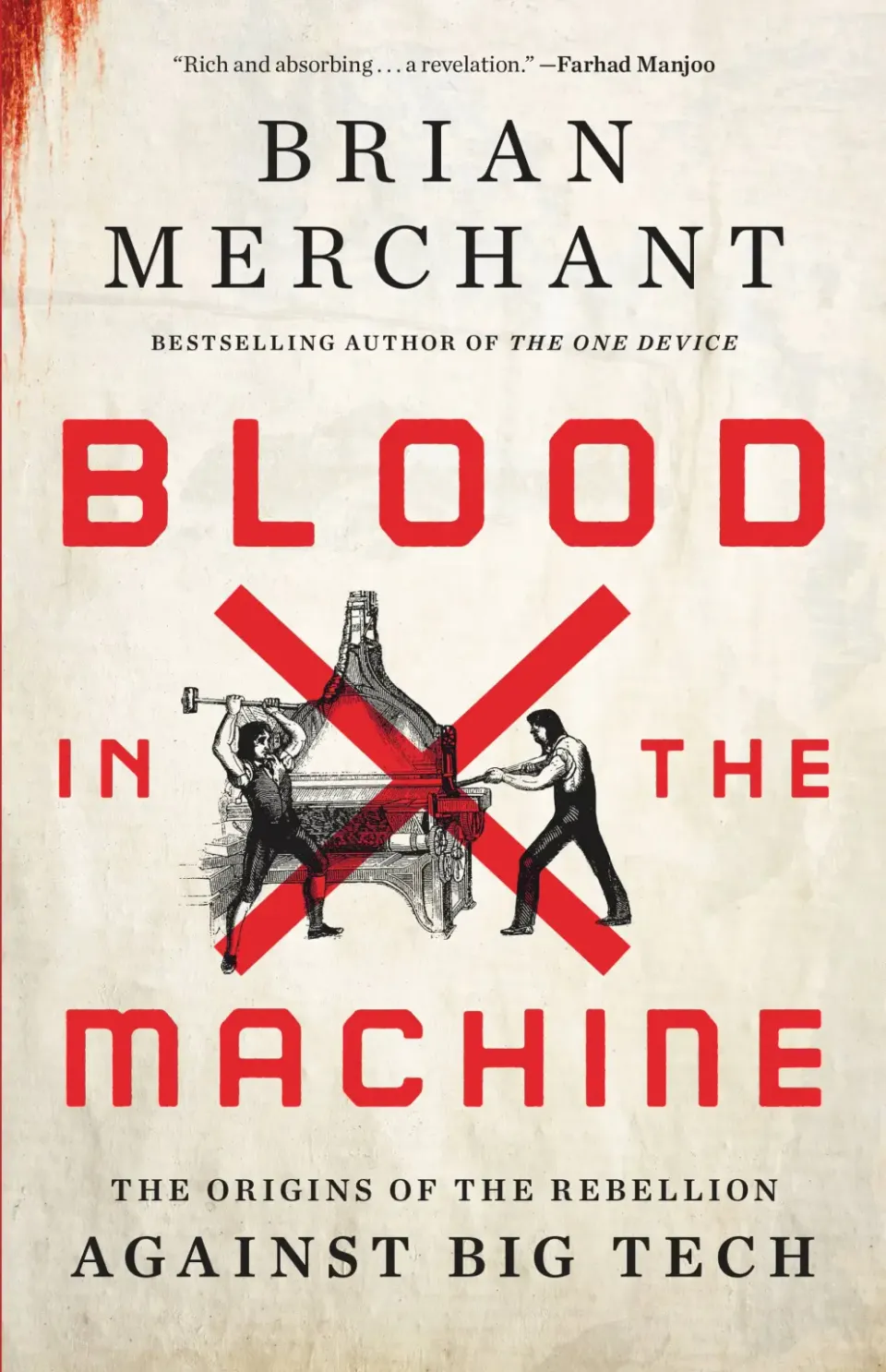Brian Merchant
“Tom Sykes had a job, a machine was built that could do that job, and someone across town decided they could increase their profits by purchasing the machine to do it instead of Tom. Now that machine does some or all of Tom Sykes’s job on behalf of its owner, and Tom has less work. The owner profits and Tom is out of luck. At no point does Tom have a say. Workers have been told for centuries that this process is normal, even morally good, because it will benefit society in the long run by making some products cheaper and more plentiful. But men like Tom Sykes and George Mellor did not accept this justification.” p 64/65
“As easy it is to forget the technologies that have been rejected – whether automated cloth-weaving devices, nuclear power plants, or contemporary facial recognition tech – “No” is, and has always been, an option – whether by policy or by force.” p 212
“Before we find ourselves entirely backed into a corner by today’s tech titans, we should ask these questions: Does their technology serve to funnel profits upstream while degrading a livelihood or destabilizing a community? Are those who rely on the disrupted systems given a democratic say in how innovation will affect their lives? The history of the Luddites – the real ones, not the pejorative figment of the entrepreneurial imagination – gives us a framework to evaluate the utility of technologies and their social impacts. Erasing that history collapses our thinking about how tech and automation affect our working lives – and the choices we have to address the disruption they bring.” p 309
“the targets for the deeper, more incendiary anger are big tech companies that are undermining standards of work. Big tech companies that clearly and openly embrace technologies that are shifting and degrading not just working conditions but how people work, period. Big tech companies whose leaders are openly hostile to their workers – crushing union drivers, enacting oppressive, maddening workplace policies, and breaking labor laws, knowing they have the economic might to clean up their messes later. Big tech companies whose leaders are the richest men on the planet, or are aiming to get there. Big tech companies that have long operated under the general impression that they are unassailable, and that are finding out that, when faces with organized resistance – they are not.” p 392




